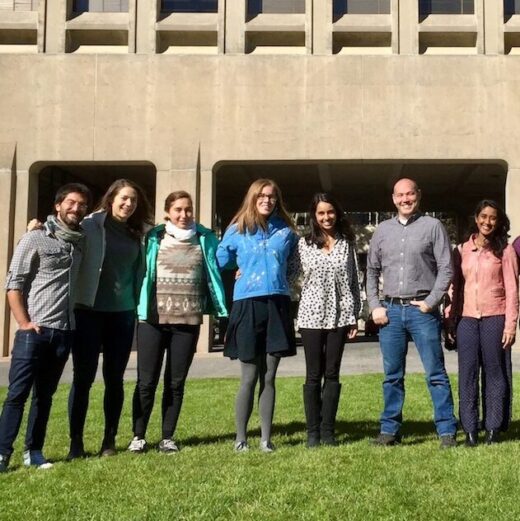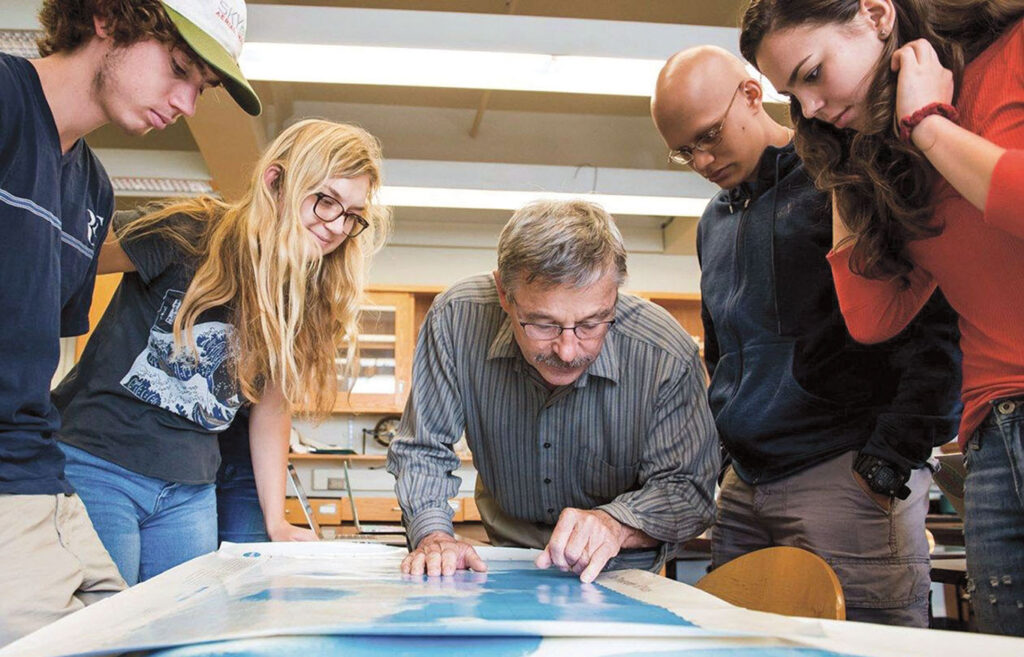About

Welcome to EAPS @MIT
The seeds of the Department of Earth, Atmospheric and Planetary Sciences (EAPS) were planted in 1861 by geologist William Barton Rogers—MIT’s founder and first president—with Geology and Mining Engineering being one of the original six courses taught at MIT. In 1983, the Department of Meteorology and Physical Oceanography (Course XIX) merged with the Department of Earth and Planetary Sciences to form the department we know today as EAPS (Course XII).
EAPS is a vibrant learning community where the turbulent oceans and atmosphere, the inaccessible depths of the inner Earth, the distant planets, and the origins of life all come together under one intellectual roof. Interdisciplinary ventures are a hallmark of our work, opening new avenues of exploration and discovery. Through fieldwork, theory, experimentation, and modeling, we prepare undergraduate and graduate students to be future leaders in academia, government, and industry, while providing the MIT community—and the broader public—with a deeper understanding of our world.
World-renowned Faculty
Every day, our 40+ faculty work to answer fundamental questions about the physical, chemical, and biological processes that shape the Earth and faraway planets, while training the next generation of thought leaders—with a long history of peer recognition, including:

- 3 MacArthur Fellows
- 20 National Academy of Sciences Members
- 24 American Academy of Arts and Sciences Members
Top-ranked Education
Combining the momentum of MIT’s global research enterprise with the advantages of an accessible, collegial department, EAPS is consistently ranked as one of the top geoscience departments in the world—and home to an exceptional cohort of early-career scientists:

- 60 postdoctoral scholars
- 175 graduate students
- 25 undergraduate majors
Our Mission + Values
As a community of scholars, our mission is to expand scientific understanding of the natural world through fundamental discovery and education, for the benefit of humankind.
Principles of Community
Guided by MIT’s mission and the MIT Values Statement, the Department of Earth, Atmospheric and Planetary Sciences (EAPS) at MIT is dedicated to cutting-edge research, teaching, and serving society. We believe that excellence in all aspects of our work can only be achieved when every member of our community feels safe and supported. We strive to provide an environment that promotes physical, emotional, and intellectual well-being.
Members of the EAPS community welcome talented individuals from all backgrounds. We treat others equitably and respectfully, and avoid actions or speech that transgress the bounds of courtesy, confidentiality, and respect. We embrace diversity and promote inclusive and collaborative attitudes and actions to enhance knowledge and creativity. We reject acts of discrimination based on race, ethnicity, sex, gender identity, age, disability, sexual orientation, religion, financial background, country of origin, and political beliefs, and we will confront and respond to such acts appropriately. We are EAPS, and we all share responsibility for our department and culture. Enforcement of policies that derive from these principles is vital to the strength of our community.
Mentoring and Advising
EAPS faculty are expected to help enhance the professional lives of students, research and administrative staff, and faculty colleagues, and to contribute to building a diverse community through involvement in research, teaching, service, admissions, and hiring at all levels. They are expected to mentor, supervise, and teach students from diverse backgrounds whose experiences and outlook may be different than their own. To perform these roles well, faculty must be skilled researchers, mentors, and learners, and possess an appreciation for diversity both within their research groups and in all areas of department life.
EAPS faculty and teaching assistants who engage in fieldwork must carry these ideals with them to the field, recognizing that they may travel and live with students and others from diverse backgrounds. It is their responsibility to demonstrate appropriate and respectful behavior, and to embrace and accommodate the identities and cultures represented in the group they lead.
Our Commitment to Building Community
Guided by our Principles of Community, EAPS is committed to fostering a working and learning environment that actively welcomes and nurtures a diversity of perspectives and lived experiences through actions in the following areas:
• Composition
• Achievement
• Inclusion, belonging and well-being
• Engagement and learning
• Accountability

